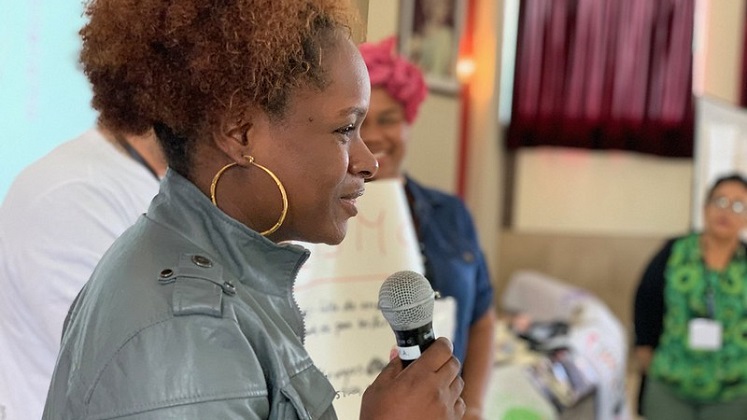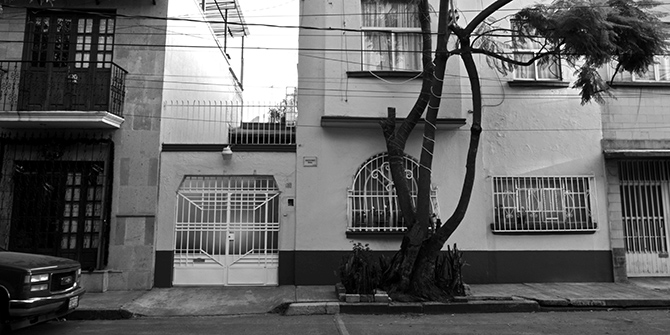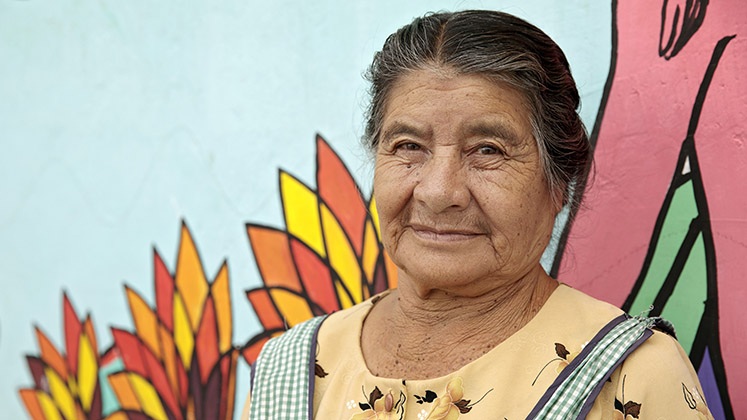Eighteen million people in Latin America are domestic workers, 93% of whom are women. During Covid-19, they experimented with even higher vulnerable conditions and increasing demand for their services. While some organisations in the region promoted initiatives and campaigns, most of them still go through an evident lack of recognition and rights, as, Jorgelina Loza (CONICET and FLACSO, Argentina) depicts.
When it comes to talking about domestic work, the Covid-19 crisis, unleashed in 2020 and still ongoing, evidenced the vulnerability of female workers, as well as the weakness of trade union confederations in Latin America. The crisis showed the existing strong structural inequalities in the access to employment, education, and health for large sectors of the region’s population. Under these conditions, women saw their living circumstances impoverishing and inequalities growing. For women who were already employed in vulnerable scenarios, the opportunities to comply with current legislation were reduced, while their health hazards at work increased.
Although Latin America is the region with the largest number of countries that have ratified the International Labour Organization’s Domestic Workers treaty, known as Convention 189, progress has been limited and very slow. It is estimated that there are 18 million paid domestic workers in the region, 93% of whom are women. These women constitute 11,4% of the regional female workforce, according to ECLAC numbers. Countries such as Argentina and Uruguay have presented substantial progress with legislation that seeks to regularize paid domestic work, given that around 80% of this sector is still in informality.
Estimations show that only 24% of paid domestic workers in Latin America, benefit from health or social security services. Additionally, ECLAC reported on another fundamental disparity, linked to access to information and communications technology. These workers suffered highly vulnerable conditions, exacerbated by the increase in demand for their services, as schools and other childcare spaces closed during the pandemic. They also experienced an increasing exposure to the virus as they were considered essential workers who continued to work normally after the Covid-19 outbreak.
The pandemic worsened the care crisis, namely the necessity of thinking about who takes care of those who need it and how those responsibilities are distributed in a household and society in general. The issue had a strong media impact and was an ongoing topic in transnational networks and social organisations that bolstered their actions during this period.
More risks, less protection
International organisations and agencies were very active in generating and disseminating specific information about domestic workers’ situation and made recommendations for policy intervention. CARE, a US-based organisation that supports the Latin American and Caribbean Confederation of Domestic Workers (Conlactraho), shared outreach campaigns with updated information on the conditions of female workers in the region during the pandemic. They reported that the salary of domestic workers was reduced on average by 50%, as their working hours were cut, or they lost some of their multiple jobs. Intergovernmental agencies like ILO, UNDP and ECLAC have also been advocating for regularisation in national contexts as a way to improve the working conditions in addition to promoting strengthening of domestic workers’ unions.
CARE and Conlactraho worked on a campaign in which union representatives and domestic workers groups from eleven countries received training on social media and regional communication campaigns to highlight their own narratives. In this context, they launched an illustrated edition of the International Labour Organization’s Violence and Harassment treaty, known as Convention 190, as a strategy to make it more accessible to women workers.
Domestic worker organisations in the region were actively involved in exposing situations of rights violations. In Brazil, the first person who died from Covid-19 was Cleonice Gonçalves, a domestic worker who was forced to continue working at her employer’s home. Brazilian organisations uncovered forced labour situations in which employers prevented workers from returning to their homes. Although these extreme situations were not reported in countries such as Argentina, it was known that some women preferred to stay at their workplace, fearing that they could lose their jobs if they left. In addition, there were cases of migrant women who were forced to continue working without receiving wages during lockdown.
Organisations were also active in participating in intersectoral spaces, promoted by regional governments. They launched initiatives and campaigns during the pandemic to assist women workers and raise awareness among employers.

Coordinated actions to respond to the crisis
2021 marked ten years since the signing of Convention 189, and Conlactraho developed a series of studies and exchange initiatives with organisations, unions, and governments to discuss whether alternative reports are helpful tools to publicise if the Convention is applied in the countries that had ratified it. Although these meetings highlighted the political and cultural diversity of the countries gathered in Conlactraho, they also made it possible to acknowledge that female workers’ vulnerability including rights violations, and persistent discriminatory and racist practices extend regionally. Faced with these conditions, the organisations seek to consolidate effective mechanisms for reporting and protecting domestic workers against violations of their fundamental rights.
Coordinated action between different organisations at the national, regional, and international levels continues to appear as an essential strategy and a way to guarantee an intersectional and diverse approach regarding the strategies adopted by groups and governments. This also implied involving women’s and migrant organisations, grass-roots communities, and indigenous and Afro-descendent groups in designing strategies for incidence.
Female domestic workers show difficulties in unionizing themselves, and this is linked to their job features and a historical undervaluation of their work. However, in the context of the crisis unleashed by Covid-19, they have demonstrated their ability to respond to emergency situations and work together with governments (or alone) to bring resources to a sector of the population that was experiencing extreme vulnerability. In parallel, these organisations persisted in their main objective of making visible the domestic workers’ conditions, who still go through an evident lack of recognition and rights.
Notes:
• The views expressed here are of the author rather than the Centre or the LSE
• This article was part of Jorgelina’s intervention in the LACC’s Lunchtime Forums, an initiative for the Centre’s intellectual community.
•These ideas are part of a book chapter included in the forthcoming book Regional and International Cooperation in South America After COVID. Challenges and Opportunities Post-pandemic, edited by Melisa Deciancio and Cintia Quiliconi (Routledge, 2022).
• Please read our Comments Policy before commenting
• Banner image: Antonio MaloMalverde (CC BY-NC 2.0)





